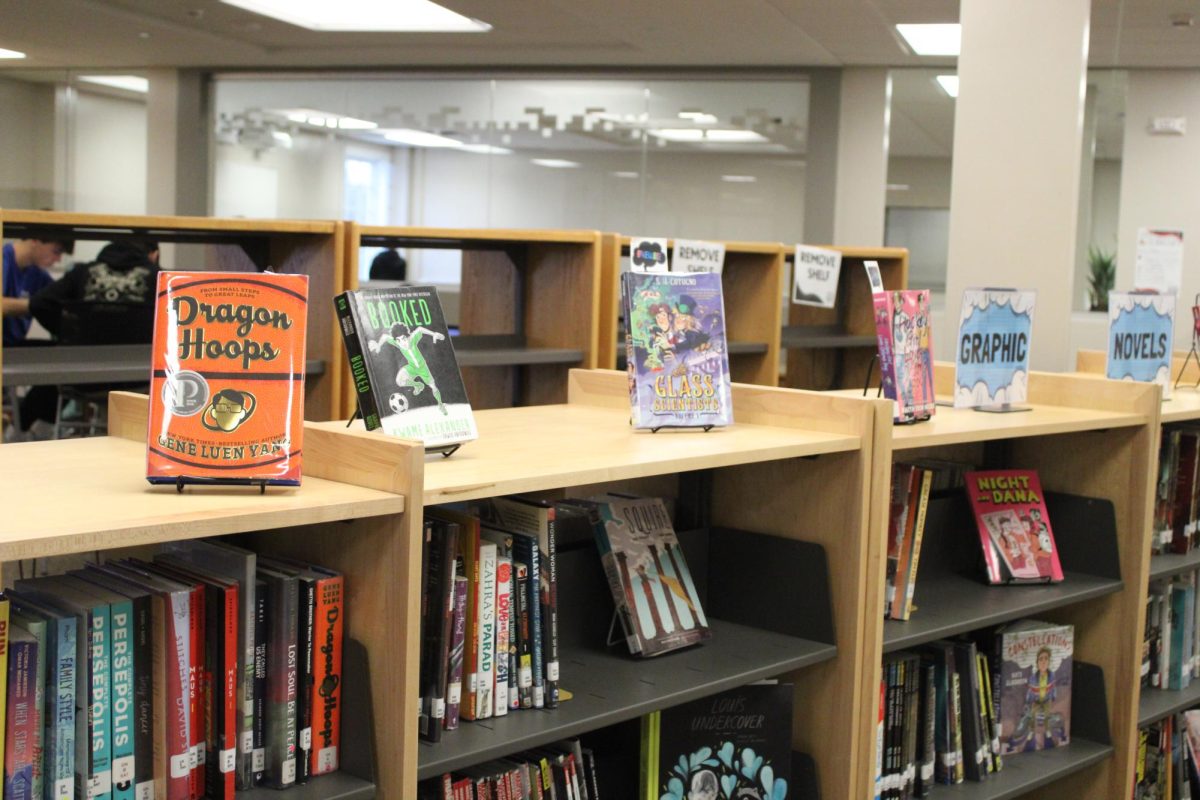This October, the Iowa City Community School District released a list of 68 books set to be removed from local libraries under new Iowa law. The bill, titled Senate File 496, bans books with depictions of sexual acts from school libraries as well as prohibits teaching on gender and sexuality until seventh grade, in addition to other legislation.
S.F. 496 has become quite controversial, especially among students in the ICCSD who feel that the bill has negative effects on their learning environment.
“Part of these book bans is just taking away any sources of education and representation for marginalized students,” Reyna Roach ‘24 said. “Especially queer students and racially marginalized students.”
This legislature comes after the disputed House File 802 which prohibits teaching about systemic racism in Iowa schools, among other things.
“It negatively impacts both teachers and students because our ability to really read is being damaged,” Lulu Roarick ‘24 said about books being removed from libraries.
The list of banned books includes titles like The Handmaid’s Tale by Margaret Atwood, The Bluest Eye by Toni Morrison, and Perks of Being a Wallflower by Steven Chbosky.
“Our commitment remains steadfast in complying with these new requirements while also maintaining our dedication to supporting our students and fostering safe, welcoming, and inclusive environments within our schools for all students,” Superintendent Matt Degner said in an email to families about the book bans.
More recently, the American Civil Liberties Union (ACLU) of Iowa, announced that they are suing to block S.F. 496. They claim that the bill discriminates against LGBTQ students and violates their Constitutional rights.
“Removing books that discuss queer topics or people from our schools tells our queer students that they do not belong there, that their existence is shameful,” Puck Carlson ‘24 said in their client statement. “I am not shameful.”
The lawsuit is summoned on behalf of a non-profit organization dedicated to supporting LGBTQ youth called Iowa Safe Schools.
“Removing these books not only makes queer people less visible,” Carlson stated. “But it also stops students from discovering and being true to themselves.”
In addition to the list of banned books, the ICCSD has extended the same type of review that is used for books in the library to books used during independent reading time and for class assignments. Books used for independent reading must be off of a pre-approved list or have to have been cleared by a teacher, lamenting that the book doesn’t have content that conflicts with the law.
“For a lot of students, this independent reading or this assignment is the only time that they’re reading,” Roach said. “So if you’re blocking especially queer students from reading books about themselves during the only time they have set aside for that, it’s completely limiting to the representation they have access to.”
The list of banned books will not be finalized and put into effect until January 1, 2024. After that date, teachers and administrators will be able to be penalized for violating the bill’s legislation.
“It is important to show that students are thinking about [the bill] and that students do care,” Roarick said. “It’s best shown when you have bodies going up and speaking and writing these things.”






























